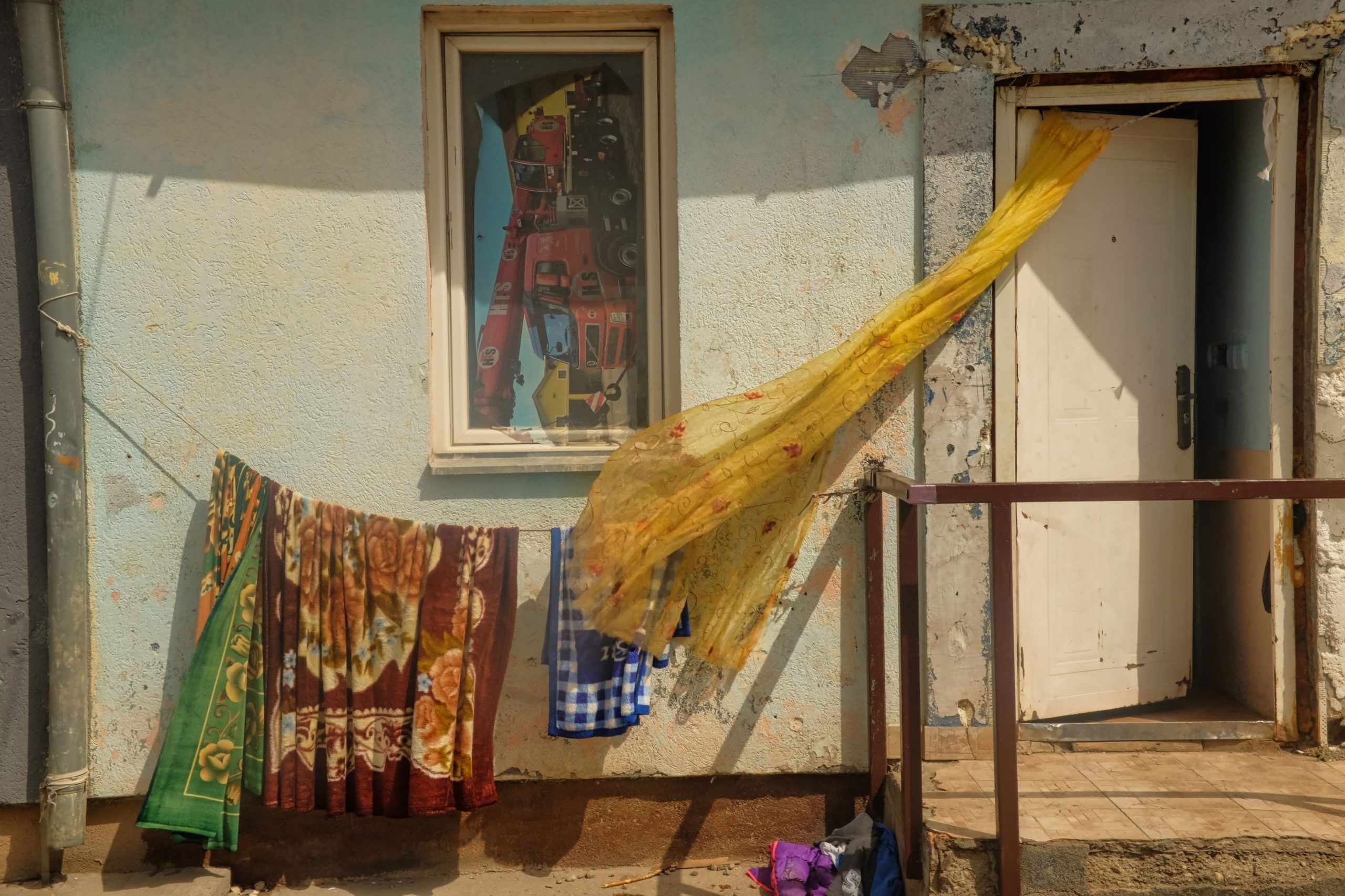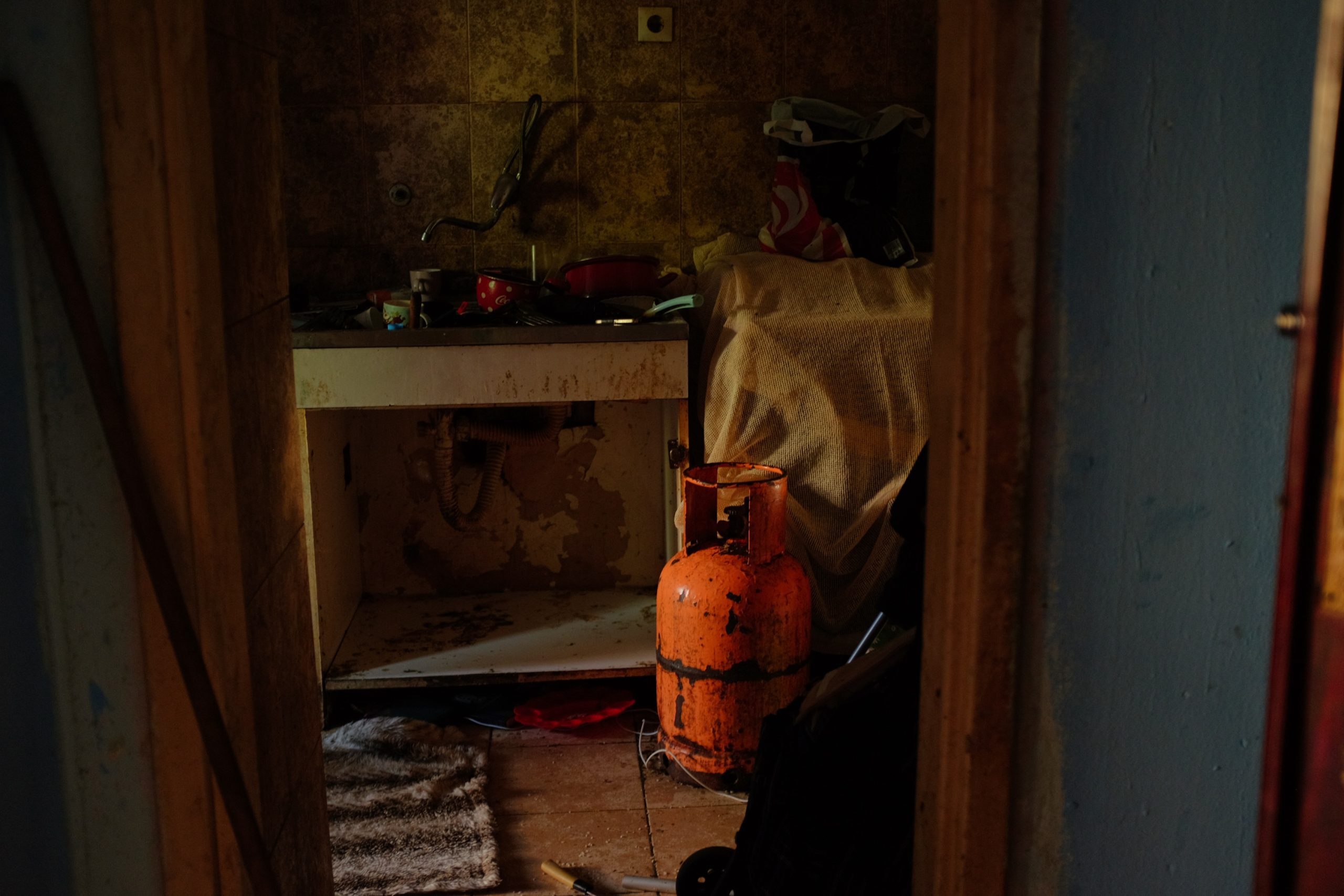Voices from the Sylff Community
Nov 12, 2024
Interiors of Inequality: Ethnographic Exploration of Social Housing in Serbia
Residents of Serbia’s social housing estates navigate a landscape marked by overcrowding, institutional abandonment, and a persistent threat of eviction. Fieldwork conducted using an SRG award by Sara Nikolić (University of Belgrade, 2020–21) reveals that contrary to stereotypes that label them as lazy or deceitful, these individuals are actively engaged in homemaking and yearn for improved conditions.
* * *
The narratives of abandonment and neglect articulated by the residents of social housing estates in Serbia come as no surprise when thinking of the welfare system in the country. In public discourse and the media, people dependent on welfare, especially those in Roma communities, tend to be portrayed as lazy, incompetent, fickle, and intrinsically prone to crime.
With the aim of countering such racist narratives, I have been conducting research into the nexus between social housing tenants and their living environments. Specifically, my research probes the concept of homemaking and its boundaries within the challenging context of poverty and extreme housing precarity.
Overturning Popular Stereotypes
What I gathered from social housing estate residents during my fieldwork challenged the popular notion of tenants as criminals who deceive and exploit the state and taxpayers and who base their claims on exaggerated or false claims. They frequently lamented what they legitimately perceived as an inadequate state presence, expressing the need for the state to provide more services and resources to the local community and their estate.
Moreover, the residents’ use of terms like “care” and “interest” suggested a deeper, more personal connection to their neighborhoods, implying that the estate was situated within the moral framework of the local community (Kocsh 2014).
The socialist system in Yugoslavia, which considered housing as social infrastructure, provided a relatively easy path to securing a roof over one’s head. This system was suspended in 1990, however, when constitutional changes abolished the obligation of employees to set aside a contribution for housing construction from their salaries.
This was followed by the “big bang” privatization of apartments. In just under five years, the housing market was completely transformed, with 98% of publicly owned apartments passing into the hands of private owners (Damjanović 2010). This speedy shift toward neoliberal housing policies also resulted in a steady withdrawal of state resources and services from social housing estates.
The estates where I conducted my fieldwork—a small community of twenty, mainly Roma households displaced from Kosovo and a large neighborhood of nearly a thousand households of economically and socially disadvantaged families, again mostly of Roma origin—are exemplary in this respect. Situated, respectively, in the outlying areas of a middle-sized town and the capital city, they were built in the 2000s to offer housing for seriously disadvantaged communities.
For over 10 years now, about half of the residents of both estates have been without electricity, and a large number of households are at constant risk of forced eviction. In addition to problems of unemployment, welfare dependence, and health problems related to poor housing conditions, these tenants must deal with a vast and inflexible bureaucratic machinery when reporting problems with their homes or the rental system.
In the following, I describe the findings of an ethnographic inquiry into the homemaking practices of these estates, conducted with the help of an SRG award.
In-Depth Interviews with Residents
This research project adopted the concept of unhomeliness to describe the state’s lack of care, as manifested directly and collectively within social housing estates (Miller 1988; 2001; Navaro-Yashin 2012).
Ethnographic fieldwork was conducted from May to September 2024, with data collection carried out by myself and two PhD students, Dušanka Milosavljević and Igor Išpanović. Since the research involved working with people, particularly marginalized communities, all activities were conducted in strict adherence to the Code of Ethics of the Institute for Philosophy and Social Theory, University of Belgrade.
Alongside records of interviews and home visits, the data collected included observations, sketches, photographs, and diary entries made during and immediately after visits to the settlements. A total of 20 in-depth, semi-structured interviews, each lasting approximately one hour, were conducted in the homes of social housing estate residents. The respondents, aged between 18 and 65, were primarily of Roma origin, with a few of Serbian and Wallachian descent. Recruitment followed a snowball sampling method, with local gatekeepers playing a key role in fostering trust and facilitating connections within the communities.
Of the 20 participants, 5 were men and 15 were women. This gender disparity is largely due to the timing of the field visits, which took place during the day when women and children were more likely to be at home, while men were often occupied with informal and precarious work, such as collecting secondary raw materials or working in construction.
All respondents provided informed consent for both audio recordings of the interviews and visual documentation of their living conditions, including sketches and photographs of their apartments. Consent covered the use of these materials for research and promotional purposes. In cases where respondents were not functionally literate, the researchers read the consent form aloud, and verbal consent was obtained.
Overcrowded Housing and Lack of Privacy
I’d rather live in a desert—at least there, no one is around.
—Man, Uzun Mirkova estate, Požarevac
The notion of what defines comfortable living differs widely. For many of my informants, who have experienced homelessness, the hardships of war, and inadequate collective emergency housing, conversations about housing often touched on issues like overcrowding, the need to share resources among family members, and distinctions between those who had benefited from welfare policies and those who had not.
Home comfort has both social and material dimensions (Johnson 2018). Socially, it involves expectations regarding living standards, as well as the economic, legal, family, and civic relationships that help maintain the resources needed to meet those expectations. On the material side, it includes the infrastructure—pipes, wiring, and other systems—that ensure the home remains warm, well-lit, and healthy. The apartments I visited during this research failed to meet such “comfort criteria.”

A family home in Uzun Mirkova estate, Požarevac, Serbia. May 2024. Photo by Sara Nikolić.
However, the greatest source of discomfort stemmed not from inadequate and health-threatening housing conditions but from the lack of privacy. When asked what they would prioritize if financial constraints were lifted, many respondents expressed a desire to “move out of here and have our own yard.” Such responses suggest a yearning for private space, rather than a fetishization of private property.
After fleeing Kosovo after the war, the residents of Uzun Mirkova lived in emergency shelters for the first 11 years. They then gained access to social housing, but they were assigned homes that lacked essential amenities and were overcrowded, with living space of only 35 to 50 square meters for each household averaging seven members.
The constant presence of other people has not engendered a sense of community. Extreme poverty has hindered the fulfillment of basic needs, resulting in a situation where individuals, particularly women, spend time together out of necessity rather than genuine social connection. Men, on the other hand, sought employment outside the estates, creating further separation. For those who have access to electricity, the preference is often to isolate themselves with the television set, disconnecting from the chaos that envelops them.
Threat of Eviction Induces “Anticipatory Uncanniness”
No one comes to visit us. They come to evict us, to give us eviction notices, to mistreat and threaten us. . . . We have no rights here, as if we’re not Serbian citizens.
—Woman, Kamendin estate, Belgrade
Housing conditions were a source of frustration and complaint for everyone. Apartments were chronically overcrowded, electricity was cut over a decade ago, mold was difficult to eliminate due to widespread dampness, and the flats remained cold during winter. Despite these issues, the competent institutions appeared reluctant to invest in repairs or maintenance, let alone in constructing new homes. Moreover, they blamed the tenants themselves for the poor living conditions. In the Belgrade neighborhood of Kamendin, a campaign against “ungrateful” residents resulted in massive eviction orders.

In the Kamendin estate, gas is used for cooking, heating, and for threatening police and enforcement officers during forced eviction attempts. June 2024. Photo by Sara Nikolić.
In contrast to common eviction narratives (e.g., Desmond 2017; Sullivan 2017), the presence of legal coercion did not lead solely to feelings of worry or despair (though such emotions were expressed as well). My research revealed that, in addition to evoking fear, anxiety, tension, depression, shame, and grief (Dudley 2000; Han 2011), the threat of eviction also generated hope and a feeling of homeliness.
More precisely, the tenants I encountered responded to the potential coercion in varying ways, ranging from anger toward racialized welfare policies and optimism over the prospect of “moving out of here” to fear of facing the grim potential of once again losing their home. This anticipatory uncanniness (Davey 2019) demonstrates how the state, through its recourse to legitimate coercion and institutional racism, subtly influences the aspirations tenants develop in relation to their homes.
Conclusion
This ethnographic exploration of social housing conditions in Serbia sheds light on the complex and often overlooked experiences of residents, particularly those living in extreme housing precarity. The narratives gathered during my fieldwork challenge the stigmatizing portrayals of social housing beneficiaries as exploiters of welfare systems, revealing instead a population that deeply yearns for stability, care, and improved living conditions. Contrary to public perceptions, these individuals are not passive recipients of state aid but are actively engaged in homemaking under conditions of chronic neglect, overcrowding, and institutional abandonment.
The research also highlights the ways in which legal coercion and the ever-present threat of eviction shape the emotional landscape of social housing residents. The anticipatory uncanniness experienced by many residents underscores how the state’s subtle and overt forms of control impact not only their current living conditions but also their visions for the future.
In sum, this study offers a critical understanding of the relationship between the state, social housing, and its marginalized residents. It calls attention to the urgent need for rethinking housing policies in Serbia, where systemic neglect, bureaucratic hurdles, and inadequate resources continue to undermine the dignity and well-being of those most in need of secure and humane living environments. By focusing on the everyday struggles and aspirations of these communities, this research contributes to broader anthropological discussions on housing precarity, social justice, and the role of the state in shaping lives at the margins.
References
Damjanović, D. (2010). Socijalno stanovanje: Prikaz stambenih politika Srbije i odabranih zemalja Evrope. Beograd: Palgo centar.
Davey, R. (2020). Snakes and ladders: Legal coercion, housing precarity, and home-making aspirations in southern England. Journal of the Royal Anthropological Institute, 26(1), 12–29.
Desmond, M. (2017). Evicted: Poverty and profit in the American city. London: Penguin.
Dudley, K. M. (2000). Debt and dispossession: Farm loss in America’s heartland. Chicago: University of Chicago Press.
Han, C. (2011). Symptoms of another life: Time, possibility, and domestic relations in Chile’s credit economy. Cultural Anthropology, 26(1), 7–32.
Johnson, C. (2018). The moral economy of comfortable living: Negotiating individualism and collectivism through housing in Belgrade. Critique of Anthropology, 38(2), 156–171.
Koch, I. (2014). Everyday experiences of state betrayal on an English council estate. Anthropology of This Century, 9.
Miller, D. (1988). Appropriating the state on the council estate. Man, 23(2), 353–372.
Miller, D. (2001). Possessions. In D. Miller (ed.), Home possessions: Material culture behind closed doors, pp. 107–122. Oxford: Berg.
Navaro-Yashin, Y. (2012). The make-believe space: Affective geography in a postwar polity. Durham, N.C.: Duke University Press.
Sullivan, E. (2017). Displaced in place: Manufactured housing, mass eviction, and the paradox of state intervention. American Sociological Review, 82(2), 243–269.
